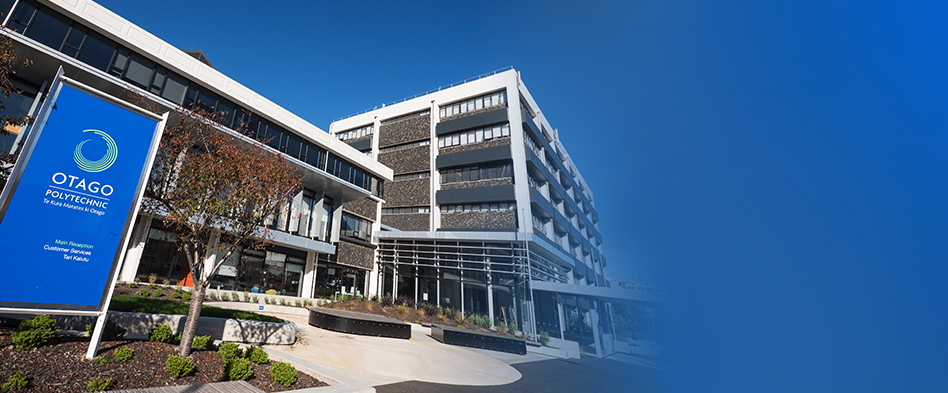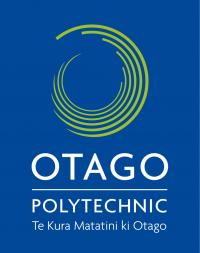New Zealand Certificate in Health and Wellbeing (Social and Community Services) (Level 4)
Use this qualification to gain the practical knowledge and skills you will need to work in the human services field. Aligned with local industry needs and national strategies, this Certificate will allow you to develop speciality knowledge alongside general human service and academic skills; choose to specialise in mental health, disability or social services support work. This qualification also provides a perfect springboard into further study. Within a supportive environment, develop the skills and confidence to progress into higher learning and undertake a degree in social services or in an area such as nursing or occupational therapy.
Our graduates have a high employment rate and many are offered work during or after their fieldwork placements in the second semester. Fieldwork placements are an important aspect of your learning experience and, as much as possible, we aim to position you in a work placement that will enable you to pursue and meet your career and life aspirations. Depending on your speciality strand, you may find yourself supporting clients for the Special Olympics, working in a kaupapa M¯aori service, running a baking group or art activity in a day programme, working on a ward at a hospital, participating in an afterschool or holiday programme, working in elderly care or playing indoor football with a group of youth.
Campus Information
Dunedin Campus
This is the main Otago Polytechnic campus. We're just ten minutes' walk from the city centre, with its great shopping and superb cafés, restaurants, museums and galleries. We're right near the harbour, mountain bike tracks, sports facilities, the cricket oval and Forsyth Barr Stadium, and a short drive away from excellent surf beaches, and outlying suburbs that have their own cool village vibe.
Intakes
- Feb
Application Processing Time in Days: 10
Application Process
Minimum English Language Requirements
| English Level Description | IELTS (1.0 -9.0) | TOEFL IBT (0-120) | TOEFL CBT (0-300) | PTE (10-90) | |
|---|---|---|---|---|---|
| Expert | 9 | 120 | 297-300 | 86-90 | |
| Very Good | 8.5 | 115-119 | 280-293 | 83-86 | |
| Very Good | 8 | 110-114 | 270-280 | 79-83 | |
| Good | 7.5 | 102-109 | 253-267 | 73-79 | |
| Good | 7 | 94-101 | 240-253 | 65-73 | |
| Competent | 6.5 | 79-93 | 213-233 | 58-65 | |
| Competent | 6 | 60-78 | 170-210 | 50-58 | |
| Modest | 5.5 | 46-59 | 133-210 | 43-50 | |
| Modest | 5 | 35-45 | 107-133 | 36-43 | |
| Limited | 4 | 32-34 | 97-103 | 30-36 | |
| Extremely Limited | < 4 | < 31 | < 93 | < 30 |
Job Opportunity Potential
Career planning and decision making
Career is a whole of life concept and not just what you are currently doing as a ‘job’. It is the Interrelatedness of all things currently in your life – study, leisure, family, friends, voluntary and/or community work, and how you fit it all together.
Career Planning
There are so many choices and options available and this can make planning your career quite difficult. The new 'world of work' requires you to be in charge of creating your own career; managing it will be a life-long journey.
Your most important asset is yourself. Therefore, the more you invest in yourself in the form of skills and knowledge development, self-awareness, networking and gaining relevant experiences, the more you expand your opportunities.
Self-assessment
Self-assessment or self-understanding is the process of knowing yourself. Before you can decide what you want to be, you first have to define who you are.
As you continue to develop both personally and professionally throughout your career, it will be necessary for you to re-assess yourself periodically in relation to your career goal provider.
Career Exploration - The World of Work
It is important to explore the 'world of work' before making a career decision to ensure that you are well informed of the work environment. Knowing where the jobs are and how easy it is to get them will influence your choices. Being aware of the obstacles or trends in the world of work will help you make career enhancing decisions to enable you to transition into successful employment.
Career pathways
From the information from your research select the one job that most appeals to you. Taking into consideration all of the information that you have gathered so far about yourself, and any other information, identify why you have chosen one particular path over the other. You could do this by drawing up a table where you list advantages and disadvantages.
Developing your action plan
Once you know what direction your career goal is in, you need to develop a career action plan. A career action plan helps to clarify directions and decision making.
Put the plan into action
The final step in the career plan is Deliver. Now you need to put your plan into action and make it happen. Start the journey towards a career you will love.
PSW Opportunity
- During study, all students on a student visa can work up to 20 hours per week during semester and full time during vacations.
- After completing Level 7 Bachelor’s Degree or Higher Qualification, a student will get a three years open post-study work visa.
- After completing Level 8 Post Graduate courses of 1 year, students get 1 year PSW.
Admission Requirement / Eligibility Criteria
To enter Otago Polytechnic’s undergraduate certificates, diplomas, and degrees, you need to have achieved a secondary school qualification that is equivalent to New Zealand’s NCEA levels (National Certificate of Educational Achievement).
India
NCEA Level 2
Equivalent entry requirements for certificates and diplomas
- At least 55% average across 4 academic subjects in CBSE, HSC or ISC with at least 60% in English, or equivalent in other boards
NCEA Level 3
Equivalent entry requirements for bachelors' degrees and selected diplomas
- At least a 70% average over 4 academic subjects in CBSE, HSC, or ISC with at least 60% in English, or equivalent in other boards.
Nepal
NCEA Level 2
Equivalent entry requirements for certificates and diplomas
- Higher Secondary Certificate with 1st division pass.
NCEA Level 3
Equivalent entry requirements for bachelors' degrees and selected diplomas
- Successful completion of one year’s tertiary study at a recognized institution. Or successful completion of an Otago Polytechnic certificate program.
Sri Lanka
NCEA Level 2
Equivalent entry requirements for certificates and diplomas
- 4 GCE O Levels with grades ranging from A-C
NCEA Level 3
Equivalent entry requirements for bachelors' degrees and selected diplomas
- Sri Lankan GCE A Levels with passes in at least 3 subjects.
- Or successful completion of an Otago Polytechnic certificate program.
International students will be individually assessed to ensure you are ready for this study.
If English is not your first language, you must provide:
New Zealand University Entrance OR
Overall Academic IELTS 5.5 (achieved in one test completed in the last two years)
- Course Type: Full Time
- Course Level: Under Graduate Diploma or Certificate
- Duration: 01 Year
-
Total Tuition Fee:
23400 NZD
Annual Cost of Living: 20000 NZD
Application Fee: N/A
Similar Programs
- New Zealand Certificate in Foundation Skills (Level 2) at Otago Polytechnic
- New Zealand Certificate in Study and Career Preparation (Level 3) at Otago Polytechnic
- New Zealand Certificate in Early Childhood Education and Care (Level 3) at Otago Polytechnic
- New Zealand Certificate in Outdoor and Adventure Education (Multi-skilled) (Level 4) at Otago Polytechnic
- New Zealand Certificate in Early Childhood Education and Care (Level 4) at Otago Polytechnic

